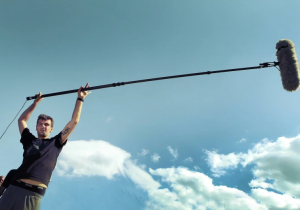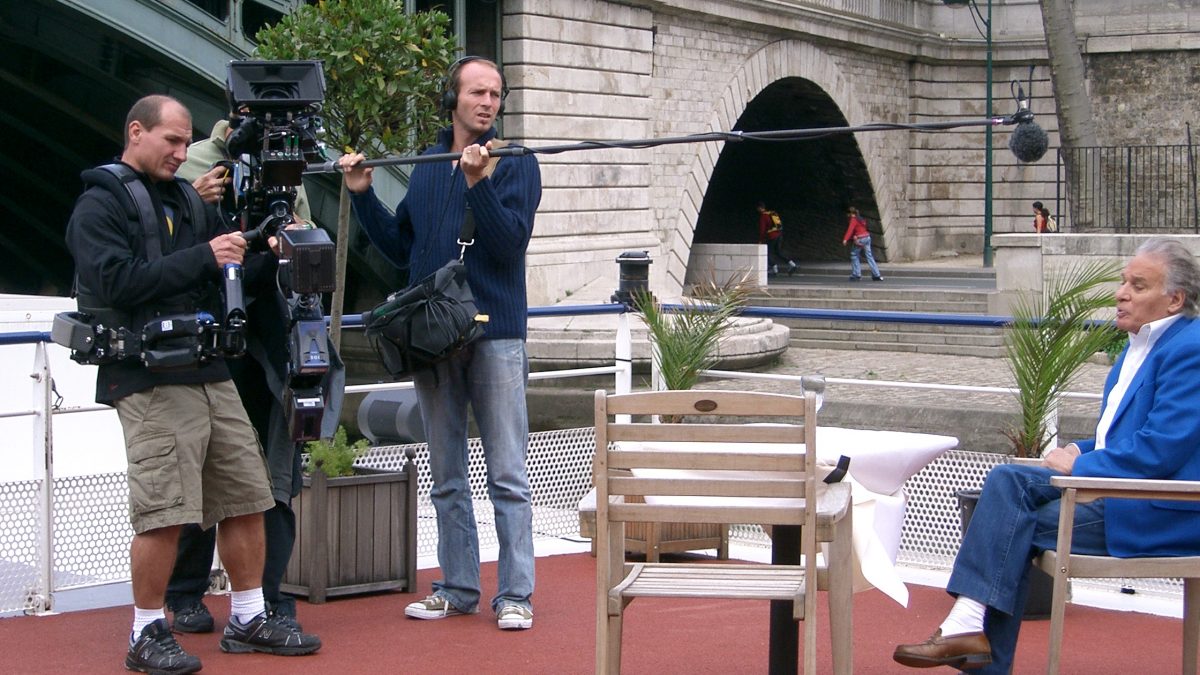Aspiring filmmakers are often hesitant to dream higher because of financial constraints. Cameras are quite expensive, as are sound equipment and studios. Expenses get higher and higher the more the production value does.
Filmmakers are and have always been quite resourceful. One example of this is the fact that some filmmakers are not even using normal cameras to shoot their films, but instead are using their smartphones instead.
But the game really changes when it comes to sound. Recording good quality sound that is free of degrading white noise and background noises is a real challenge.
Bad Audio Quality Is a Problem
The main problem filmmakers’ face is recording good quality sound for their movies. Basic microphones are so inadequate that they can only pick up a small range of close sounds which include lots of noise.
Filmmakers know that a poor audio recording can destroy any movie. Movie watchers will sometimes accept poor image quality but, they simply won’t accept poor quality sound.
In order to help you get the best quality sound on a budget, we have put together a list of the top 10 tips for recording sound on a budget.
1. Record in a Studio
Recording the sound in any location can be very difficult. Outside of a studio, you cannot control the noise made by the bystanders or just about anything else.
This is why most filmmakers opt to record a sound in a recording studio to get the best possible audio quality. Even though this technique may cost you a lot of money, in the end, it guarantees that you will get a good quality soundtrack.
Background music is difficult to record as well. Music is always best recorded in a controlled environment. Recording inside a studio is one of the best options to get good audio quality.
Keep in mind that if you cannot afford a top sound studio, you can approach a university or even set one up of your own. Numerous music albums, for example, have been recorded in makeshift sound studios.
2. Always Listen to the Sound Technician
Trust in your sound man. Nobody knows sound better than your sound technician. Always consult with them. You should start this process long before you even plan to shoot the scene. Discuss with them your ideas and then ask them for input. This will help you get the best out of them.
When it comes to shooting, keep things flexible and allow your sound guy to experiment. A good sound technician should always be able to make something special out of whatever challenge you give them.
3. One Man Can Do the Work But the More the Better
An expert sound technician can record, mix, dub and edit the sound all by themselves.
While keeping the size of your production crew down can help financially, if possible, it is best to get help for your sound engineer. This will allow them to concentrate on getting things right the first time.
4. Use a Good Quality Microphone
Yes, you can film a movie using your smartphone. But what about the sound? Good quality sound is important in filmmaking. This means that you will need to invest in at least one good quality microphone.

If you record in a studio then it is likely you will have access to its good microphones. This will obviously improve the quality of sound that you get enormously.
5. Film In Good Locations
This might sound like yet another obvious point, but it is actually amazing how many filmmakers neglect to think about the sound considerations when choosing their location.
When scouting locations, try to bring your sound technician. Your sound technician will then be able to give you their input to help you choose the right location for your film.
One example is wind. If you would like to include a scene from a mountaintop, for example, your sound engineer will be able to tell you straight away if you can also get your sound from there. (https://dougrushingrealty.com/) If not, they will have to find another location from which to film the sound for the scene.
6. Record without Background Noise
Never try to record your dialogue with a piece of background music, for example, playing. Background music is good but can easily be added in post-production.
Film with as limited noise as possible. The most important aspect is getting conversation clearly recorded. Just about everything else can be added in post-production.
Unnecessary noise can damage your chances of getting a good end result. If your soundtrack recorded is interrupted, you will need to start the scene all over again. This is why location is so important.
7. Always Record a Wild Track
Recording a sound from one scene to another scene requires a wild track. This “is an audio recording intended to be synchronized with film or video but recorded separately”.
A wild track serves to help distract viewers when a scene changes. A noise such as a scream, for example, can also be used to create tension or suspense. While you might not always use the wild track, your editor might decide that it will spruce up the scene to have one.
8. Get a Professional Boom Operator

A boom operator is a person that is responsible for the proper placement of microphones. A professional boom operator will always seem to get the boom in the right place to get the best sound.
9. No Overlapping Dialogues
Avoid overlapping dialogues. Overlapping dialogues are hard to edit. This will mean more work for you in the editing room and may severely limit the edits that you can make.
10. Choose the Right Song/Music
When sourcing sound for a movie, one problem that filmmakers encounter is copyright. Make sure that any music that you plan to use can be used. Check to see if the song is available for free or if you have to pay a copyright fee. Settle this issue before filming so as to ensure to avoid setbacks.
Subscribe Us –




Stay connected